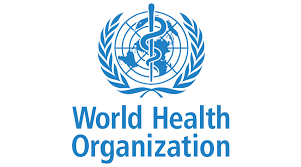
World Health Organization
nearmejobs.eu

Job Description
<!–
Description
–>
The Country Health Emergency Preparedness and IHR (CPI) Unit in the WHO Health Emergencies Programme (WHE) in the Western Pacific Regional Office supports Member States in enhancing national preparedness, readiness and response across the IHR (2005) core capacities to manage all hazard risks and emergencies, and to build whole of government and whole of society approaches for health security. It ensures that WHO supports Member States to build sustainable preparedness capacities and scale up the implementation of the IHR (2005), and support the implementation of the Sendai Framework, the WHO Health Emergency and Disaster Risk Management Framework, Paris Agreement on Climate Change and other related global and regional frameworks. CPI works with partners and the broader heath security community to ensure that the most vulnerable communities in countries are protected from the impact of health emergencies, in line with the biregional Asia-Pacific Health Security Action Framework (APHSAF).
Duties:
- Summary of Assigned Duties Work in coordination with all technical focal points at regional and headquarters level, under the guidance of the Technical Officer, Risk Communications.
- Provide technical assistance to national authorities in and coordinate RCCE aspects of the WHO Health Emergencies (WHE) programme, to enhance the capability in preparedness and response to emerging infectious diseases, outbreaks, and other health emergencies.
- Technically support the concerted approach of WHO in the areas of emergency risk management, country preparedness and International Health Regulations, risk and situation assessments, and infectious hazards management.
- Collaborate with and support relevant ministries and other stakeholders to undertake gap analyses in RCCE areas of work for emergency preparedness and management, develop/revise national strategies and a national multi-hazard, health emergency preparedness and response plan.
- Prepare a RCCE national risk profile, assessing and mapping existing and emerging national health risks as well as populations vulnerable to, or affected by, prioritized risks, their coping capacities and health needs.
- Identify resource needs and funding gaps for RCCE preparedness and response for vulnerable/affected populations, advocating with and mobilizing required resources from partners and donors.
- Support the RCCE assessment of capacities and national, competency development systems, and recommend, plan, and facilitate the implementation of appropriate measures and training for strengthening core capacities under International Health Regulations (2005) including to manage identified risks;
- effectively monitor and evaluate processes, outcomes and the impact of response and recovery interventions.
- Support the national health authorities and partners in the establishment or strengthening of RCCE emergency systems to ensure the provision of a range of critical emergency health care services.
- Coordinate RCCE knowledge capture from policy, strategic and field interventions, and ensure its dissemination.
- Represent WHO in interagency meetings and external forums related to WHO epidemics and emergency preparedness and response.
Education:
Essential:
- A university degree (bachelor’s) in communication, public health, health promotion, journalism or social sciences such as international relations/global studies or a similar field from a recognized university
Experience:
- Essential: A minimum of five years of work experience, including relevant international exposure, in RCCE for planning, implementation, monitoring and evaluation of epidemic and emergency preparedness and response activities in a developing country and/or at regional level. Experience required in strengthening country capacities and response to emergencies and disasters, including infectious disease outbreaks. Experience in working partnerships for health policy and strategic and operational interventions in emergency preparedness, response, or recovery especially in a developing country setting.
Skills:
- The principles and programmes of epidemic and emergency preparedness and response.
- Knowledge of the International Health Regulations (IHR).
- The development and coordination of health policy and/or strategic and operational interventions in emergency preparedness, response, and recovery.
- Planning, monitoring, and evaluating health systems.
- Excellent oral and writing skills, including for reports, oral presentations and technical documents.
Language Skills:
- Excellent knowledge of English
Source: https://careers.who.int/careersection/ex/jobdetail.ftl?job=2409474
<!—
Recommend your friend
<!–
–>
To help us track our recruitment effort, please indicate in your cover/motivation letter where (nearmejobs.eu) you saw this job posting.
Related Jobs
-

SECRÉTAIRE MÉDICAL(E) (F/H)
Appel MédicalNantes, Loire-AtlantiqueNantes, Loire-Atlantique -

Alternant Business Analyst Efficacité commerciale (F/H)
NestléIssy-les-Moulineaux, Hauts-de-SeineIssy-les-Moulineaux, Hauts-de-Seine -

World Bank: Counsel – Washington DC
MIGA - Multilateral Investment Guarantee AgencyWashington DC, United StatesWashington DC, United States- Contract
-

Senior Associate, Action & Engagement
World Business Council for Sustainable Development (WBCSD)Geneva, SwitzerlandGeneva, Switzerland- Contract